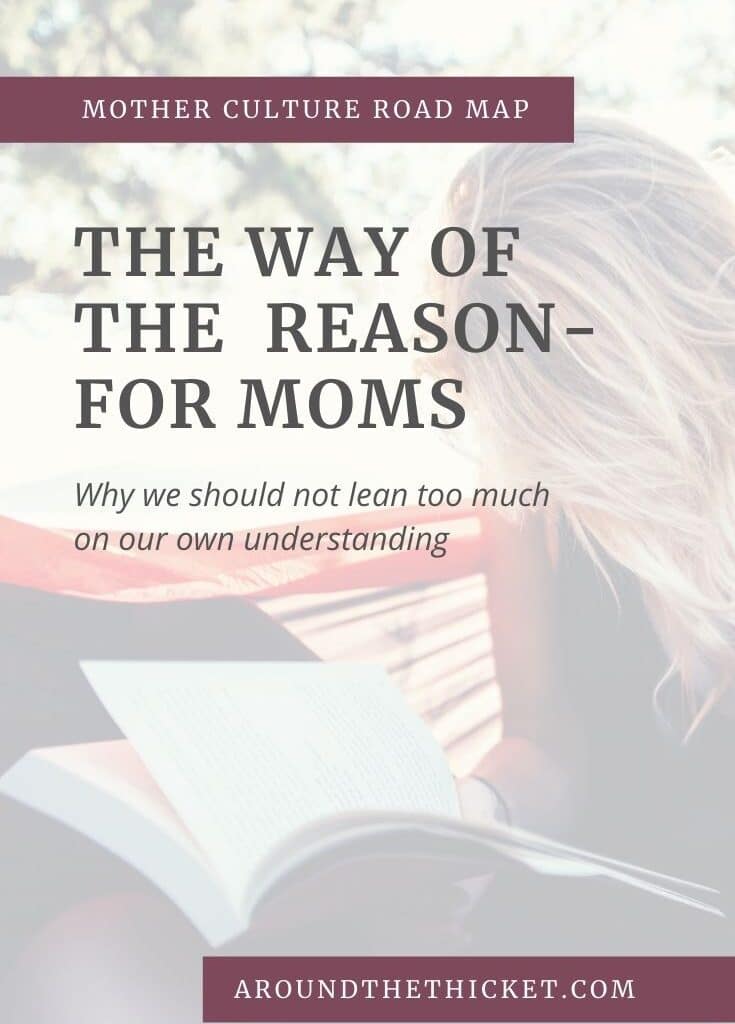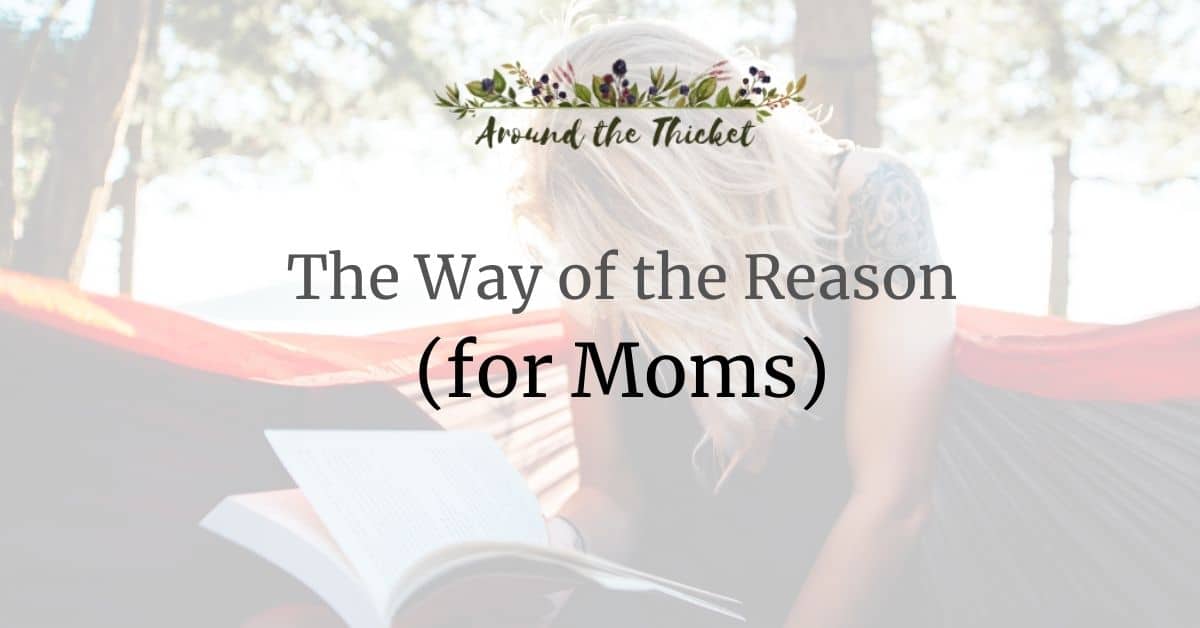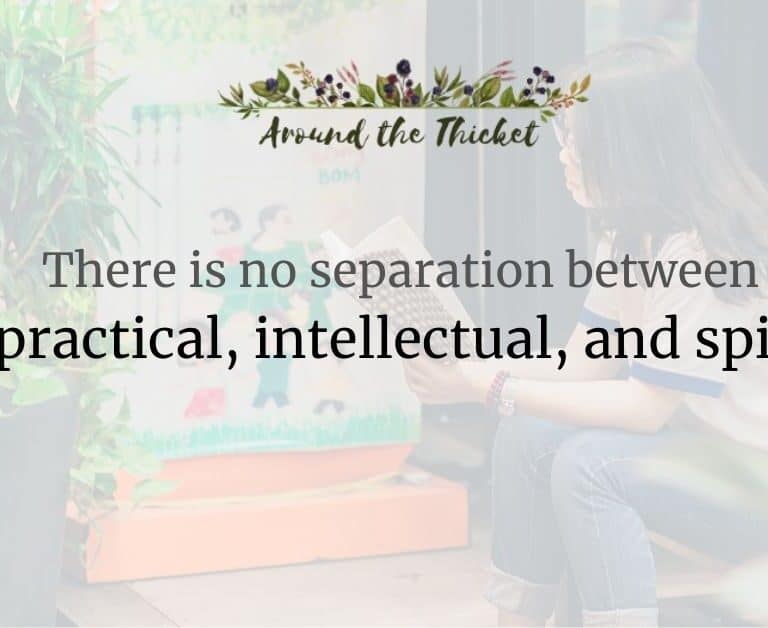The Way of the Reason (for Moms)
From the last post in the Mother Culture Roadmap, we learned that the will is our means of choosing to do what is right, and that it is easily fatigued. We often try to reason with ourselves in order to work up our will to do the right thing, but this process usually wears us out rather than makes us stronger. Reasoning makes it harder to do the right thing, rather than easier.
But why is reason such a poor aid in our attempt to make good choices and follow through with them? Is it because we didn’t take classes in logic as young adults and our arguments are full of strawmen and red herrings?
Charlotte Mason would say, ‘No’. As humans, reason is an innate ability. We are good at reasoning – almost too good. That is why, after explaining the Way of the Will, she wanted us to understand ‘The Way of the Reason’.
The Purpose of Reason
In her eighteenth principle, Charlotte Mason tells us that:
function of reason is to give logical demonstration (a) of mathematical truth, (b) of an initial idea, accepted by the will.
Let’s start with math.
Math is lawful and ordered. Charlotte Mason writes in her fourth volume that in mathematics, every step proceeds logically from the one before it. Reason is the active agent which helps us proceed in this subject area. While Charlotte Mason felt that the development of reason did not depend upon the study of math, she believed it offered good exercise for this faculty. Even if we’ve struggled with math in the past, we can appreciate that math offers opportunity to practice reasoned thinking.
Math is not the only part of our lives where we use reason. We also use reason to “give logical demonstration of an initial idea, accepted by the will”. What does Charlotte Mason mean by this?

The Reason and Our Ideas
Here, Charlotte Mason reminds us that one of the chief functions of the will (rather than the reason) is to accept or reject ideas. I’ll talk about this more in the next post, but every time we come in touch with a new idea we can either accept it as true or reject it as false. Reason can come into play in this process. However, it has a much smaller part to play than you might think.
We like to think that we use our reason to decide whether ideas are true or false. But as we’ll see in the next post, this isn’t really the case. We are much more likely to make intuitive judgments about ideas based on our established principles. When we accept an idea based on this, we will develop reasonable, logical arguments to support that idea. We will draw sensible conclusions about what our consequent behavior and choices should be. This happens whether or not the idea we accepted was true, good, or right.
We see the Way of the Reason everywhere.
We are intimately aware of the Way of the Reason, whether or not we realize it. I think we all know people, in real life, on social media, in the news, who do things we do not agree with and who align themselves with movements that we reject. There is always someone in our familial or social circle who is entrenched in a mindset that we view as wrong. We wonder how these people can think the way they do and say the things they say. It is just so different to what we believe.
This is the Way of the Reason, both in these other people and ourselves. It is incredibly difficult to step outside of the reasoned, justifiable arguments that we make to support our initial ideas. It is hard work to undo that reasoning in light of new evidence showing that we were wrong in the first place. Our reason entrenches us more and more into what we already thought and the ideas we accepted. We struggle to make sense of other people’s differing views because our reason has fortified our own views.

The Risk of Reason
Reasoning, in itself, is neither good nor bad, but it is far more suited to validating what we already believe to be true, than it is to helping us see our own errors. This is why Charlotte Mason says that reason is not a safe guide, because
whether that (initial) idea be right or wrong, reason will confirm it by irrefragable proofs.
We do well to take our warning from the proverb:
Lean not on your own understanding (Proverbs 3:5b).
Our own understanding can lead us far away from doing what is right. It can blind us to falsehood, and justify abhorrent actions. Therefore, as I’ll discuss in the next post, it is absolutely essential that we develop good principles in order to accept good ideas.
Want to find your feet with the Charlotte Mason Way?

Grab my eight day mini course on the Charlotte Mason Essentials when you subscribe to my newsletter. You’ll get daily emails, a mini podcast series, and a printable workbook with reading assignments and action steps. You’ll be on your Charlotte Mason journey in no time!









One Comment